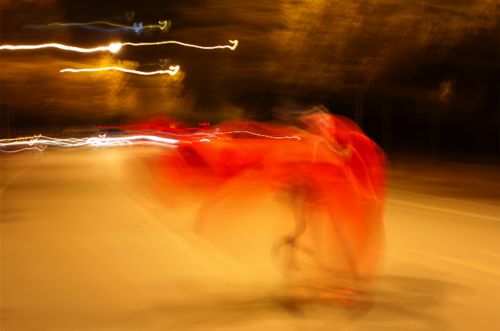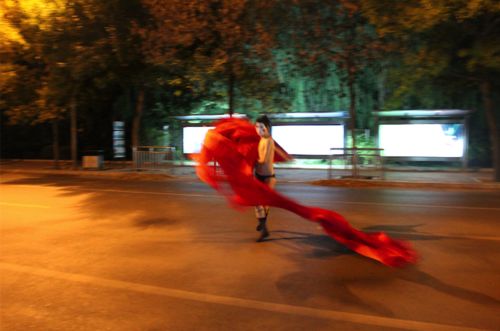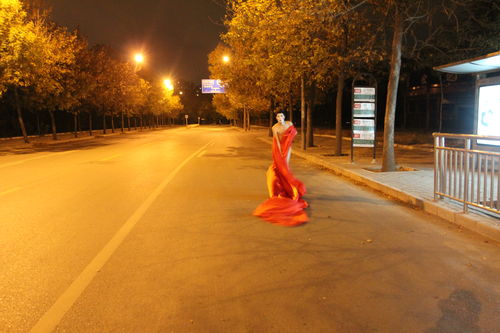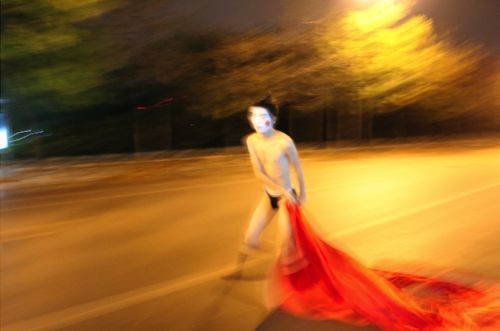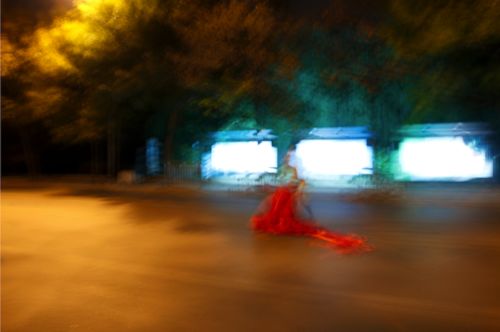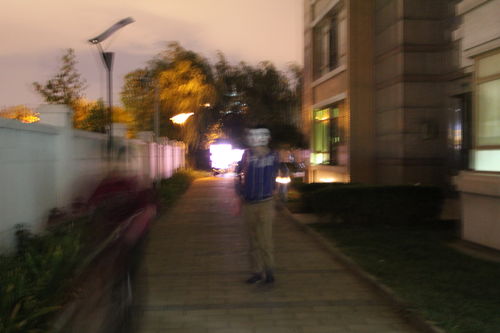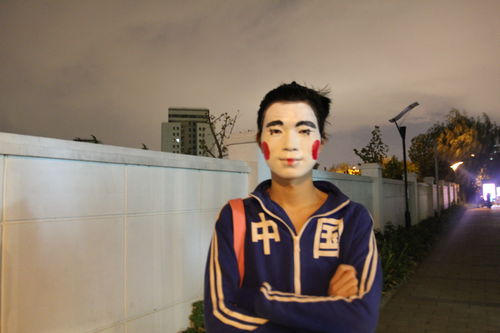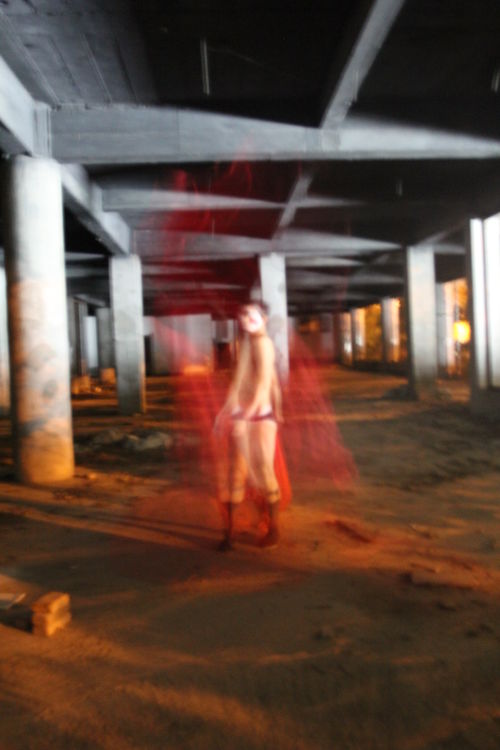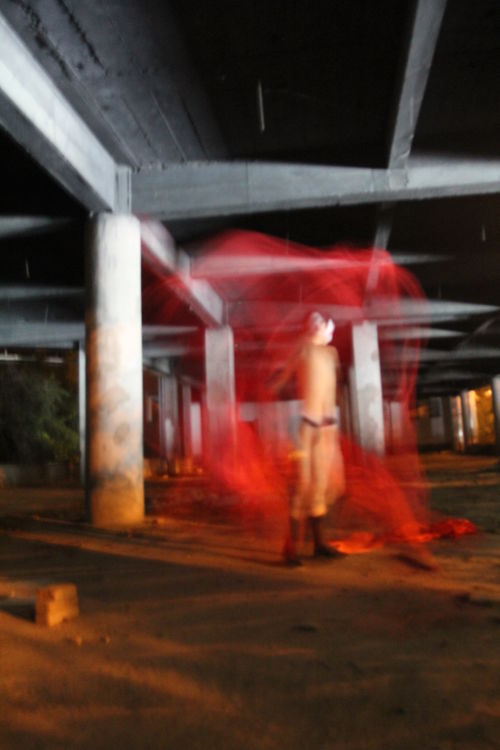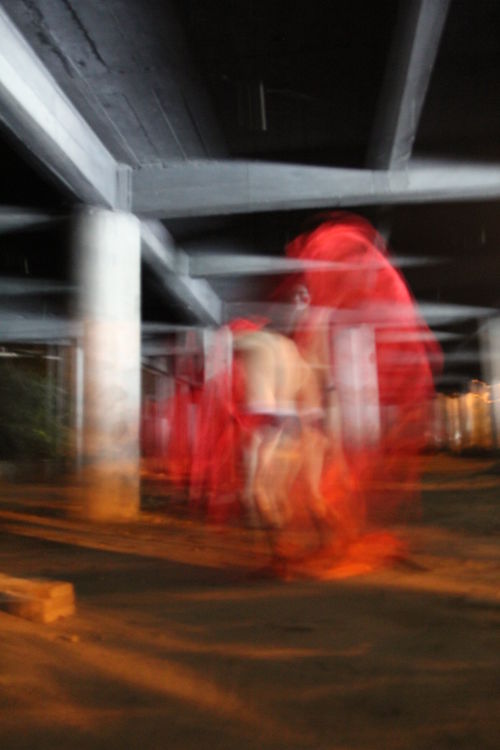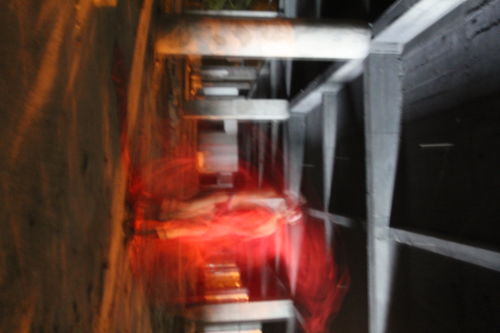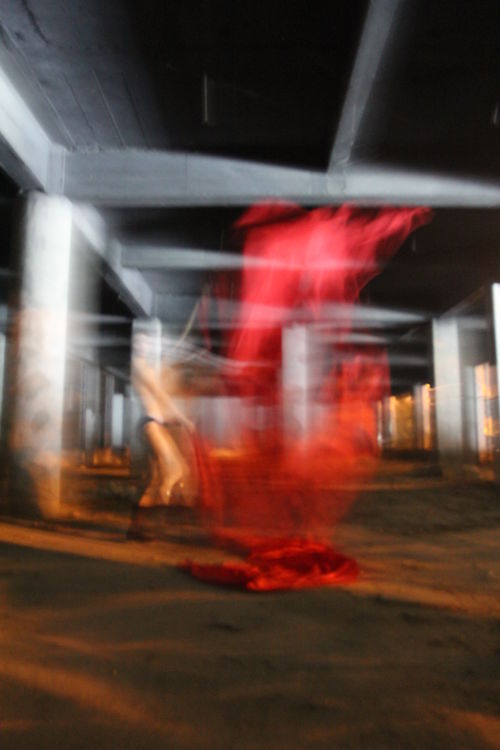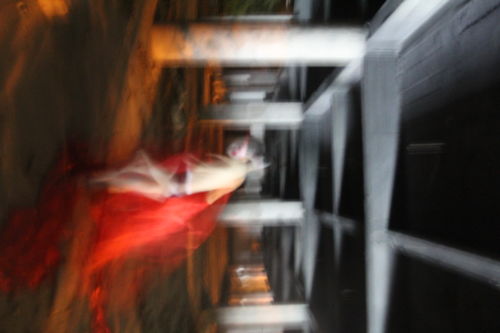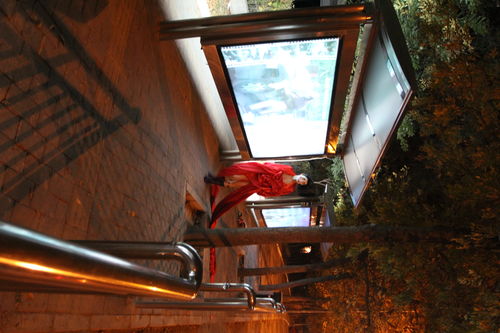
Telescope: China | Deng Tai
Deng Tai’s second solo exhibition at Telescope focuses on two specific nighttime performances entitled Shadow and Walking.
Shadow takes us on a dream like journey to vaguely familiar places in the city’s ever-present twilight. Out of focus images in hazy landscapes whirr by, occasionally resting long enough for us to make out a ghostly figure with a white pasted face draped in a flowing river of red satin. The figure is strangely familiar but alien and untouchable, like a shadow on a wall. Deng treats Beijing City like a stage for a new Chinese Opera, incorporating ancient tropes of costumes and make up but reducing them to their most simple and elemental forms; the long flowing “water” sleeves of the elaborate Peking Opera actors gowns, which are used to express emotions, have become Deng’s entire costume, the painted face that depicts the identity or emotions of a character is now just a mute yet haunting pancake white mask with thick black eyebrows and red circles for cheeks and lips.
Much of Deng’s work seems to emphasize his outsiders role socially. He was a joyous, sensitive, and loving individual but felt alone in a world that could not see, hear, or accept him like he was or others like him. He felt he had no voice and little hope except on the stage that he built in his creative imagination where through his movements and personal iconography he could tell his story. There is a child’s simplicity and foolishness to his actions, but as children are, his aim is true and his voice is arrestingly honest and moving. In this performance Deng chose the cover of night in which to play. The night is a shroud that protects and hides and gives freedom of movement and expression, a world that is hazy and indistinct, but also provides contrast. Deng’s long red material suggests a river of blood flowing out into the world. He carries his vulnerable heart in his arms for all to see. Blood is the power of life within our bodies but, when poured out, it also has the power of sacrifice for others. This river flows in and around Deng, like a womb, and then is released into the air following him like a hero’s cape or the translucent wings of a bird in flight. His painted face, drawn from a memory of a cartoon character from his childhood, glows like a white lantern peering at us through our bedroom window. His gaze is silent but straightforward and with the innocence, love, and insight of a child he waits our response.


